Efficient Funding of Chemotherapy Program
Page last updated: 1 December 2025
The Efficient Funding of Chemotherapy (EFC) program (Program) provides funding for chemotherapy medicines used for the treatment of cancer that are administered through infusion or injection at public or private hospitals. The Program also provides for public hospitals to supply certain medicines (“Related Benefits”) used to manage side‑effects associated with chemotherapy medicines, for example, anti-nauseants. Not all chemotherapy medicines are provided through this Program but may be subsidised through the broader Pharmaceutical Benefits Scheme (PBS).
The Program aims to achieve efficient supply of infusible chemotherapy medicines that require reconstitution or preparation for individual patients. This preparation uses specialised equipment and preparation process to protect health care workers preparing the cytotoxic medicine for administration to the patient.
Goals of the Program
- To minimise wastage and reduce costs to patients and to the Commonwealth by funding the lowest cost combination of vials for prescription chemotherapy medicines.
- Provide pharmacies with specific remuneration for preparing chemotherapy medicines for patients.
EFC Schedules
The Program is legislatively underpinned by the National Health (Efficient Funding of Chemotherapy) Special Arrangement 2024. The Schedules for chemotherapy medicines are available on the Publications page of the PBS website. Item lists are available for:
Changes to the listing of EFC medicines are published each month. This includes changes to forms, brands, restrictions, maximum amount or quantity and numbers of repeats. The most current prescribing and listing arrangements are available on the PBS website.
Patients
Chemotherapy medicines are administered by infusion or injection. Prescriptions for an infusion may include one or more vials of a medicine or many different medicines.
Patients will pay one PBS co-payment for each original prescription. Repeat prescriptions are dispensed at no cost to the patient. The current PBS patient co-payment is on the PBS website. The PBS patient co‑payment for chemotherapy infusions and injections counts towards the patient’s PBS Safety Net.
The National Health Reform Arrangements allow PBS medicines to be dispensed from public hospitals and the usual co-payments apply. However, states and territories that are not part of these arrangements (notably NSW and ACT) may pay the PBS co‑payment for patients.
Health Professionals
Information on prescribing and dispensing EFC medicine is available from the Services Australia website.
Claiming and Remuneration
Remuneration for injectable and infusible EFC items recognises the specialist nature of chemotherapy preparation. There are different rates of remuneration based on the type of approved supplier. These are extra to the ready prepared dispensing fees paid per item claimed and include the:
- preparation fee
- distribution fee
- diluent fee.
Infusions with more than a single eligible item will attract multiple fees. If eligible, this includes the:
- preparation fee
- dispensing fee
- diluent fee
- distribution fee.
Fees are indexed annually on 1 July. There are no wastage, container or dangerous drug fees payable.
A list of the current EFC fees can be found here.
Chemotherapy Compounding Payment Scheme
In 2015-16, as part of the PBS Access and Sustainability Package and under the Sixth Community Pharmacy Agreement, $372 million was made available to pay for the compounding of chemotherapy medicines. A two‑tiered fee structure for chemotherapy compounding fees was implemented from 1 July 2015 and fully automated by 1 December 2017.
The Chemotherapy Compounding Payment Scheme (CCPS) provides funding for chemotherapy compounding relating to eligible EFC PBS claims. This fee structure recognises the additional costs associated with obtaining Therapeutic Goods Administration (TGA) licensing of a manufacturing site, including greater focus on the quality of medicines that it provides.
Visit the CCPS Agency website to apply for a Compounder ID. Enquiries on the administration of the CCPS should be emailed to the CCPS Administration Agency.
Previous Funding Arrangements
Prior to 1 December 2011, chemotherapy was funded through a number of programs, including the general PBS, the Special Authority Program (trastuzumab - Herceptin) and the Chemotherapy Pharmaceuticals Access Program (CPAP).
The Program came into force on 1 December 2011 for private hospitals and community pharmacy. Public hospital pharmacies began operating the Program from 1 April 2012.
The Department of Health, Disability and Ageing received the Final Report into the Efficient Funding of Chemotherapy (EFC) Review in 2023.
Further Information
For enquiries regarding the Program, the EFC team at the Department of Health, Disability and Ageing can be contacted by email.
More information on the listing process for new PBS medicines is available from the PBS website.
General questions about the PBS should be directed to the PBS information line on 1800 020 613 or email to pbs@health.gov.au.




